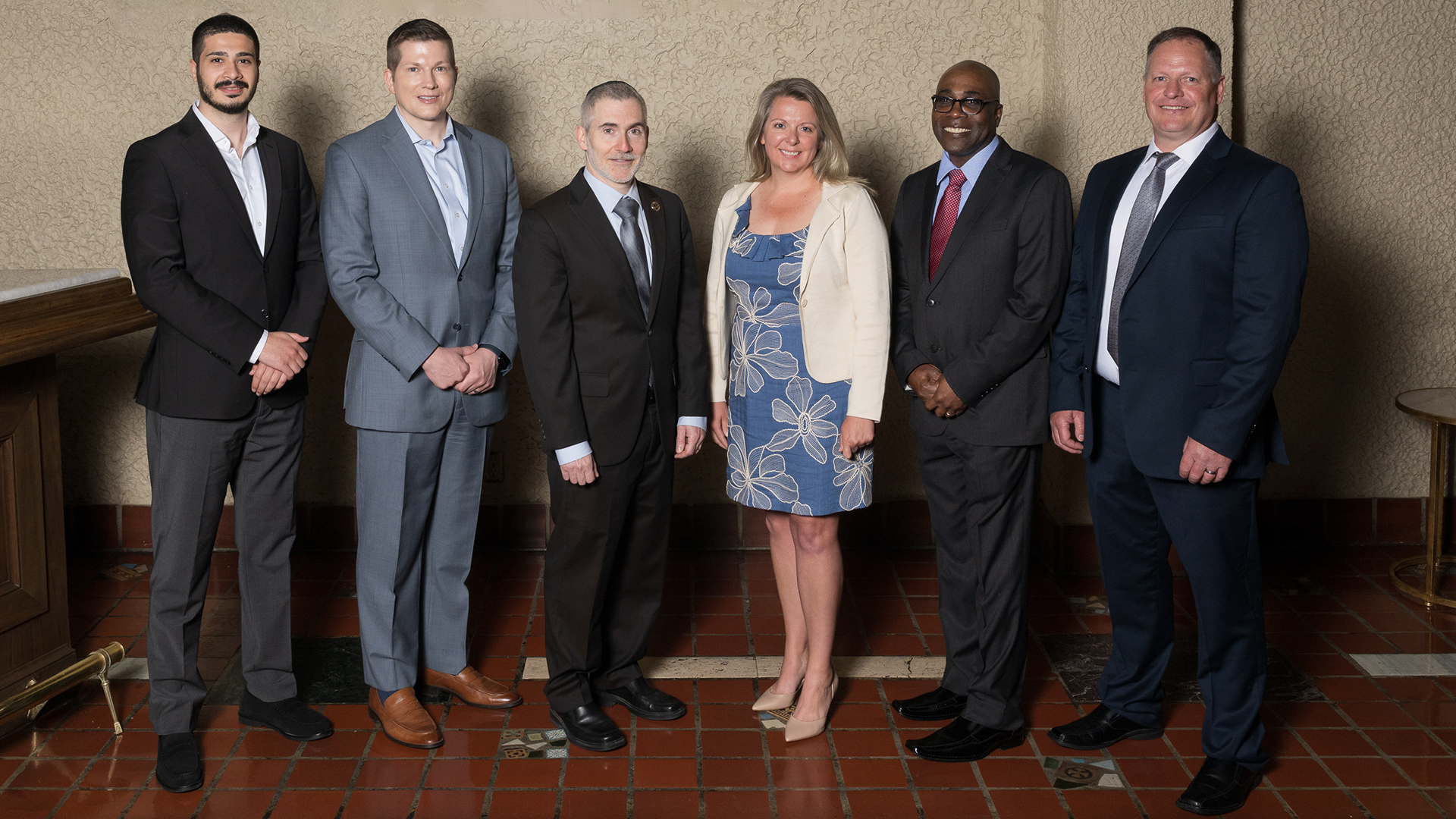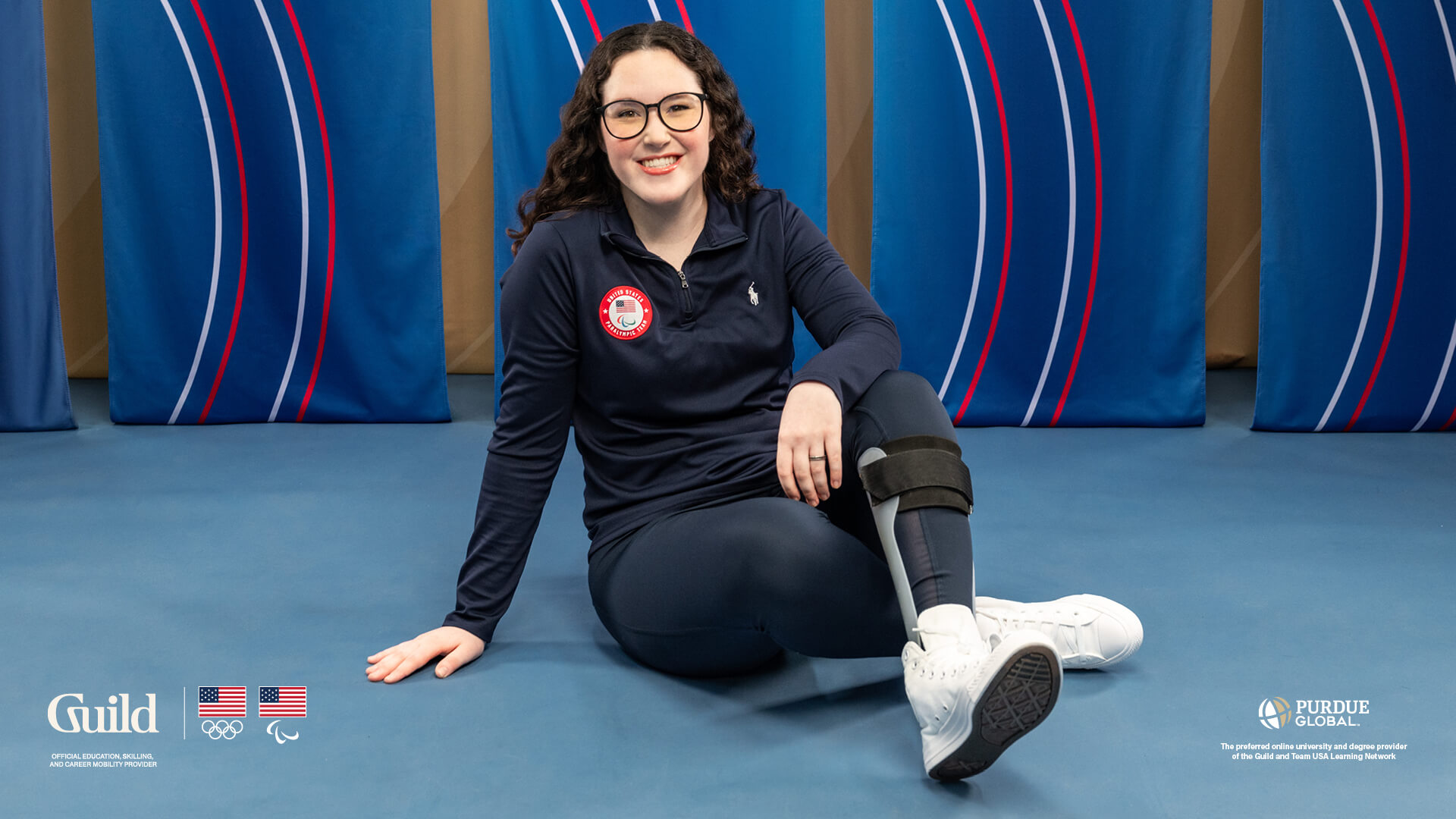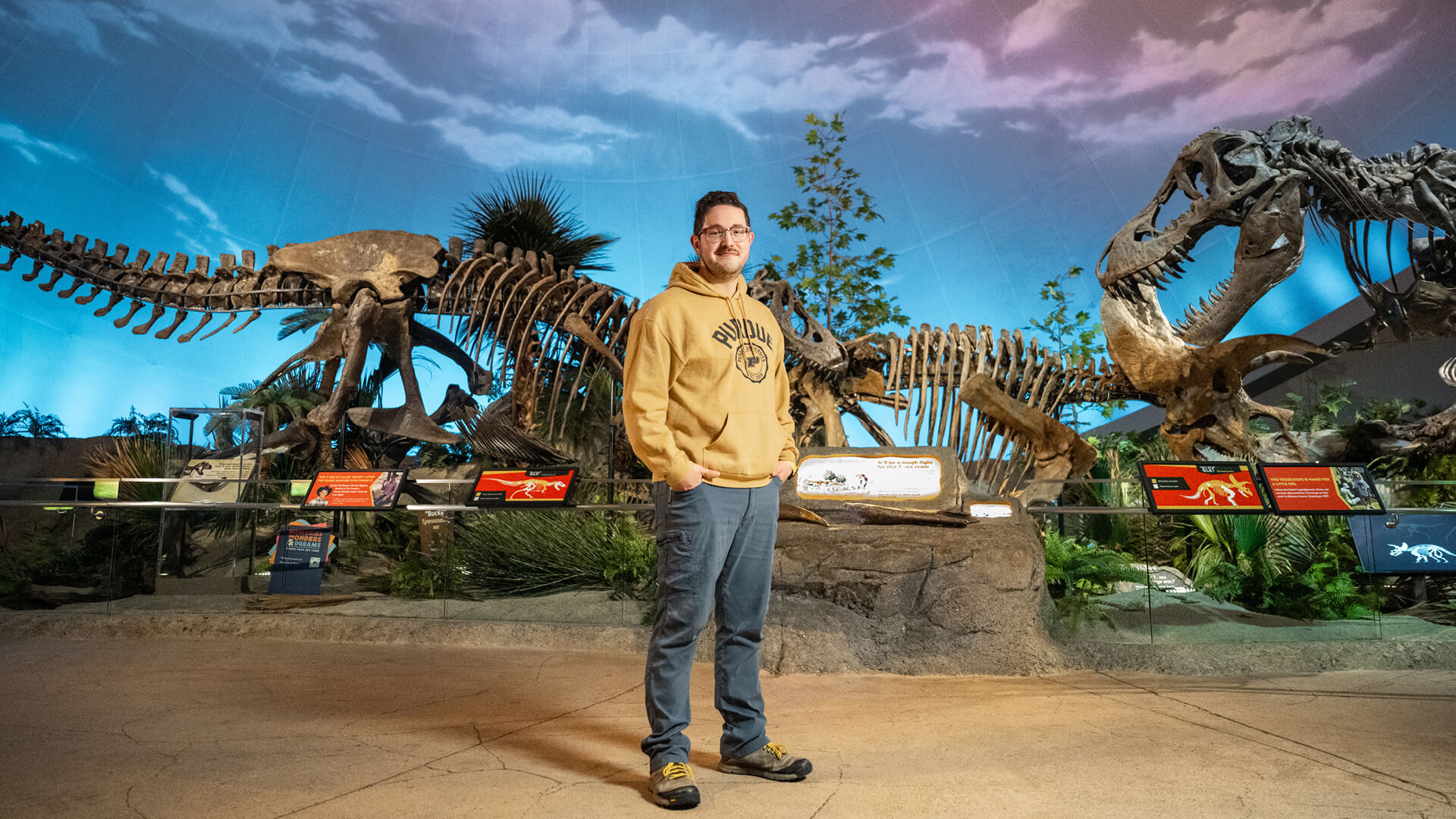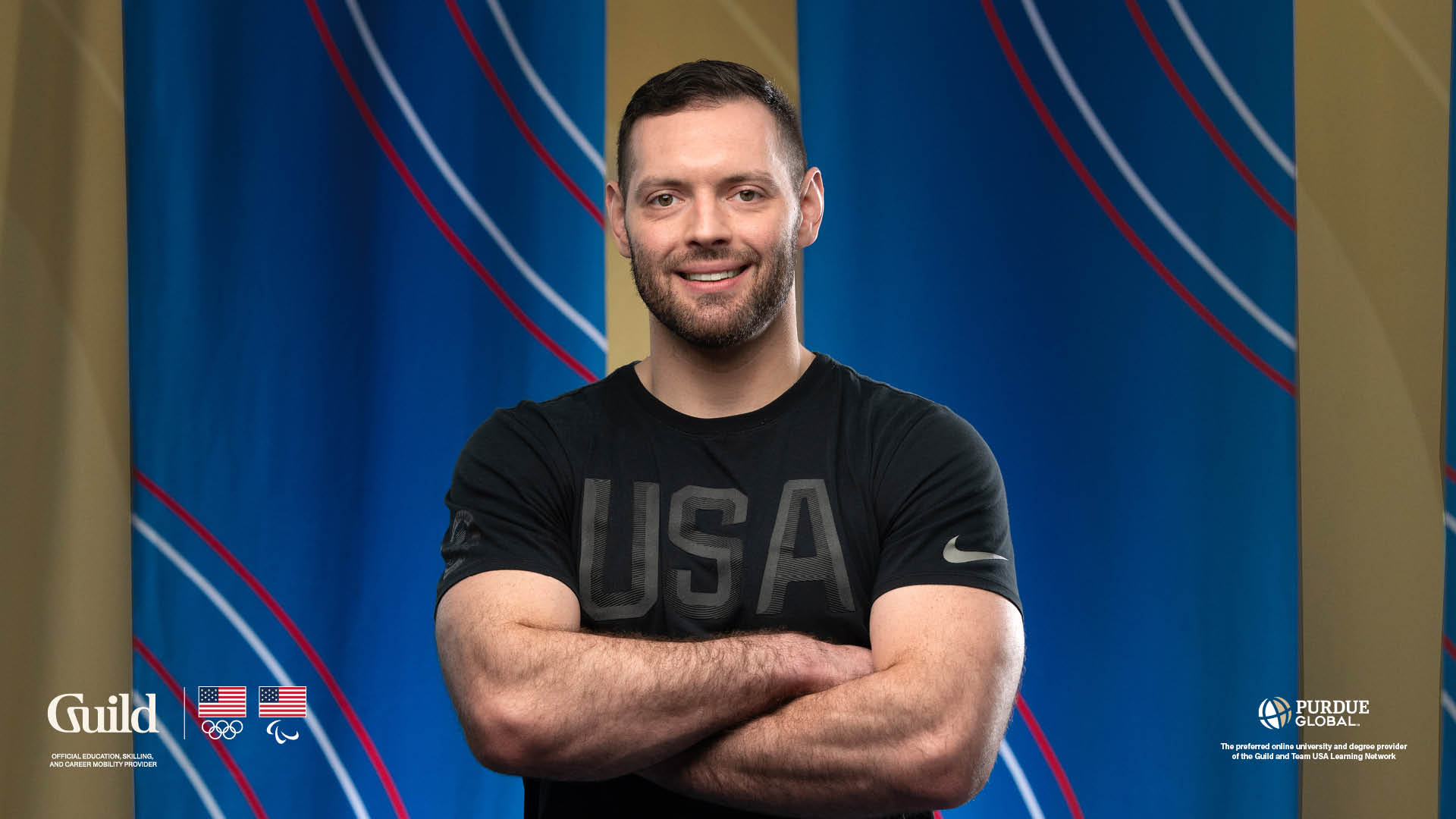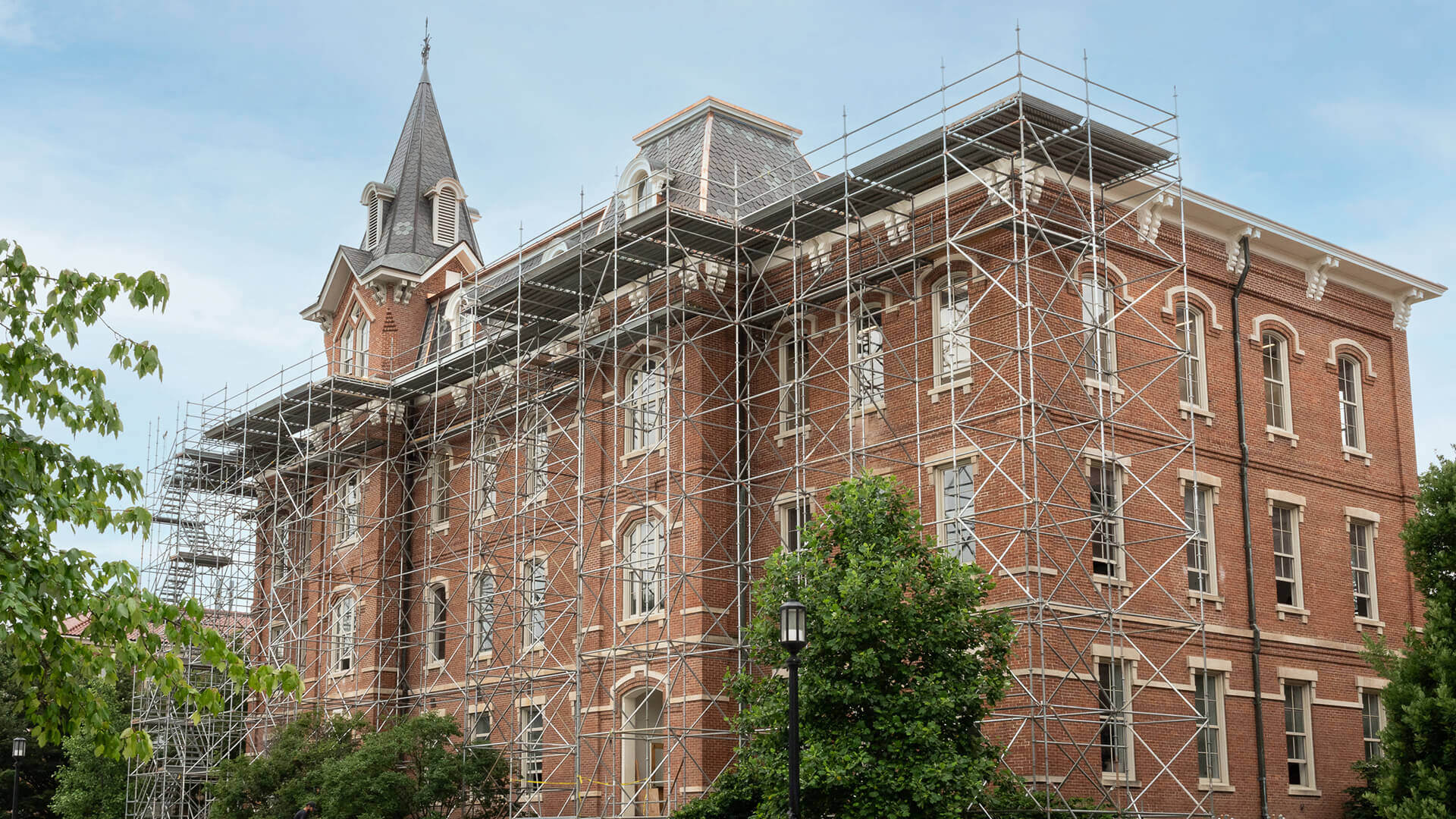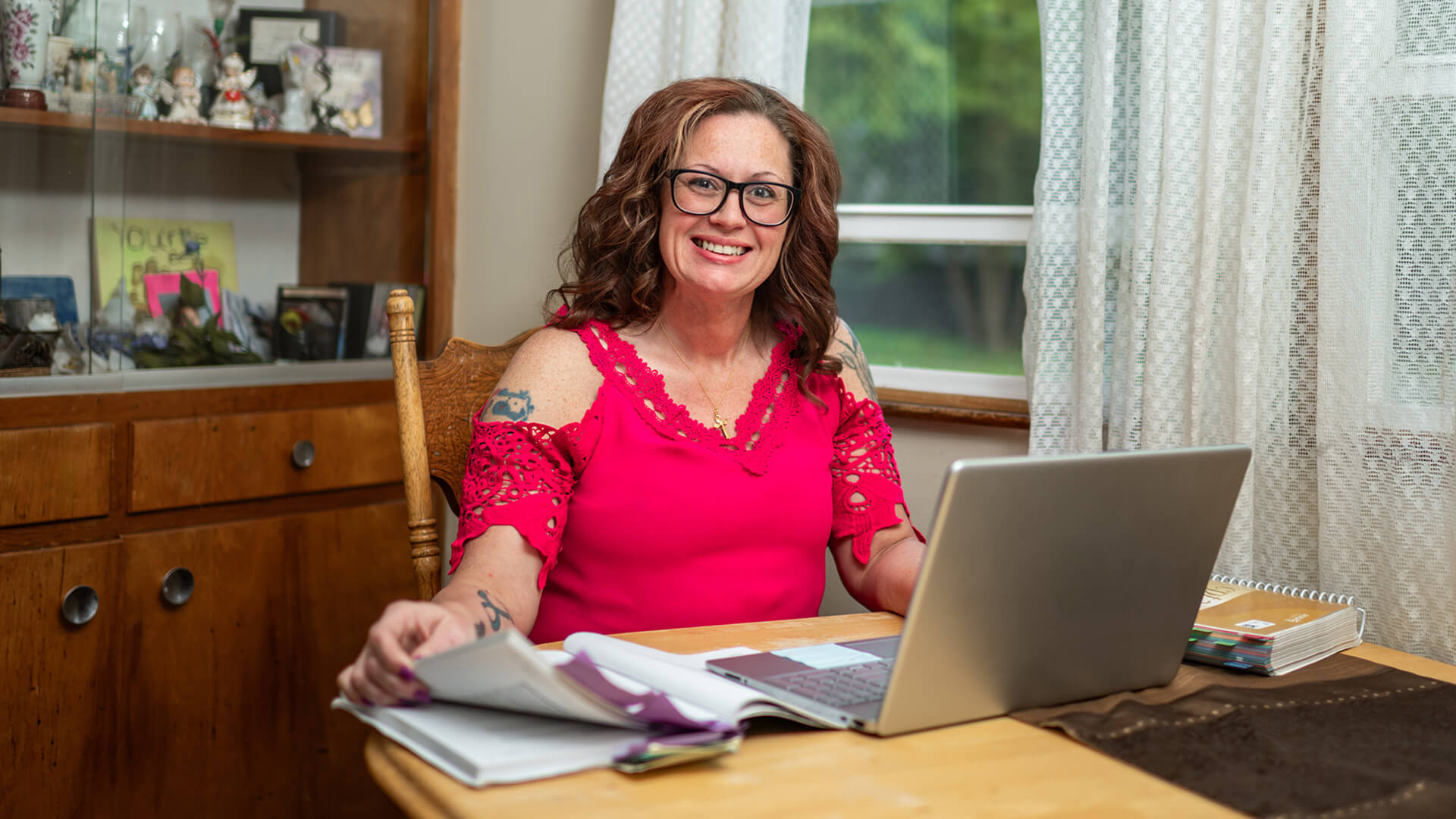Reducing tobacco use among industry-targeted populations
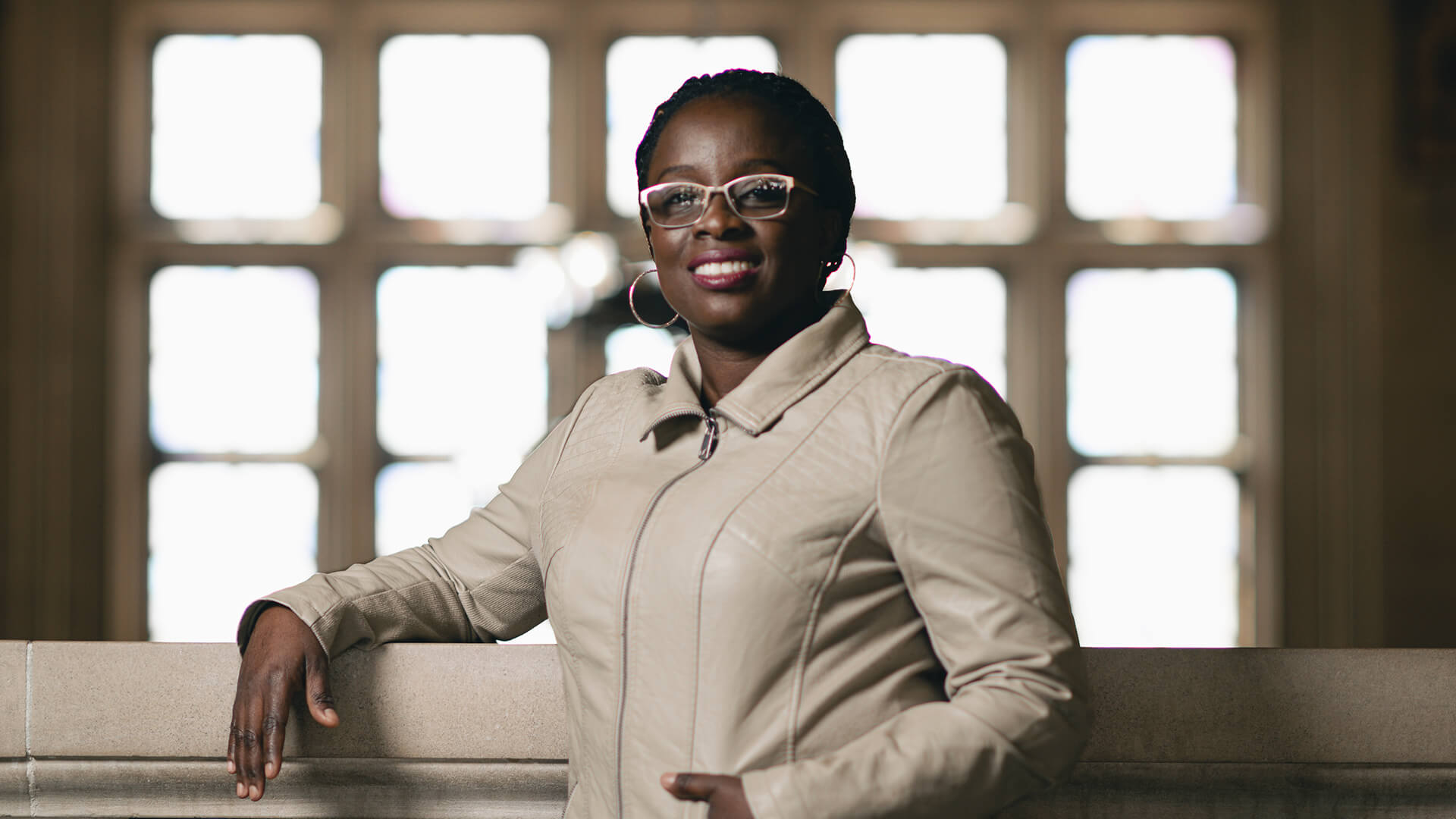
Bukola Usidame, assistant professor in the Department of Public Health, is pursuing research on socioeconomic disparities in tobacco use, the impact of tobacco advertising on various subpopulations and the effectiveness of tobacco-related policies. (Purdue University photo/Charles Jischke)
Purdue’s Bukola Usidame assesses the effectiveness of tobacco-related policies
After earning her undergraduate degree from the University of Port Harcourt in her native Nigeria, Bukola Usidame started working there in a job where she advocated for reduced and no-cost medications for cancer patients.
“I would visit doctors in the hospital and encourage them to prescribe cancer medications that were inexpensive and equally as effective,” Usidame says. “I did not understand the concept of policy at the time, but that’s what I was doing. I was trying to influence policy by talking with stakeholders and explaining how we could help people who really needed help.”
The experience motivated Usidame to move to the United States and pursue graduate degrees in health administration and public policy. While completing a master’s at Clark University in Massachusetts, she attended a branch campus in Poland, where she interned at the World Health Organization. That experience sparked her interest in global tobacco control work.
Now an assistant professor in the Department of Public Health in Purdue’s College of Health and Human Sciences, Usidame researches socioeconomic disparities in tobacco use, the impact of tobacco advertising on various subpopulations and the effectiveness of tobacco-related policies.
“The tobacco industry is hyperactive. They keep coming up with new products and new markets. Not all policies work for all populations. I evaluate the effectiveness of policies based on various subpopulation groups such as race, ethnicity or socioeconomic characteristics such as education or income,” Usidame says. “I’m particularly interested in the populations targeted by the tobacco industry which include low socioeconomic status, minorities and adolescents.”
In one recent study, Usidame examined the effects of a policy in Canada that banned tobacco advertising at point of sale (near the cash register) in retail establishments. Two years after the policy was implemented, the data indicated adult women were more likely to quit smoking cigarettes than adult men.
One possible correlation is the likelihood that women are primarily doing the shopping, and point-of-sale advertising encourages impulse purchases. Usidame focuses on retail sales because more than 90% of the tobacco industry’s marketing budget goes to store displays. Policies already exist that ban tobacco advertising on billboards and TV.
Understanding the intersection of diversity and public health is critical because when we talk about public health, we’re talking about communities of people with different religions, different sexual orientations, different races, different ethnicities.
Bukola Usidame
Assistant professor of public health
“Working with retail store owners can be challenging because they are in business to make money,” Usidame says. “Some store owners believe these policies might be detrimental to their store income, which is why we have to work with them to get them onboard with efforts to reduce tobacco use as a public health service. We’re not expecting the local government to ban tobacco products anytime soon, so voluntary compliance is essential.”
To determine what policies might help curb smoking rates elsewhere, Usidame is studying data from California and its Endgame initiative to end the tobacco epidemic by 2035.
“I’m interested in identifying which policies are working and which are not, and which policy works best for the Black population, the Hispanic population, adolescents, individuals with lower education,” Usidame says. “Understanding the intersection of diversity and public health is critical because when we talk about public health, we’re talking about communities of people with different religions, different sexual orientations, different races, different ethnicities.
“We have to meet people in their communities and figure out how their culture and their differences apply to a particular health outcome. That’s why I’m very grateful to be part of this cluster hire. Everything doesn’t work for everybody. If we’re going to achieve overall public health, we have to intersect with culture and diversity every single time.”
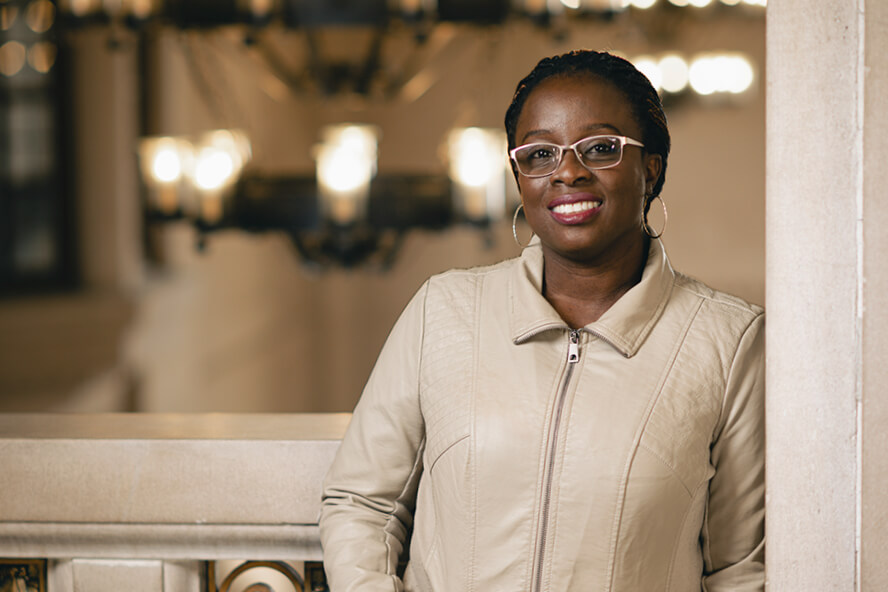
Everything doesn’t work for everybody. If we’re going to achieve overall public health, we have to intersect with culture and diversity every single time.
Bukola Usidame Assistant professor of public health

